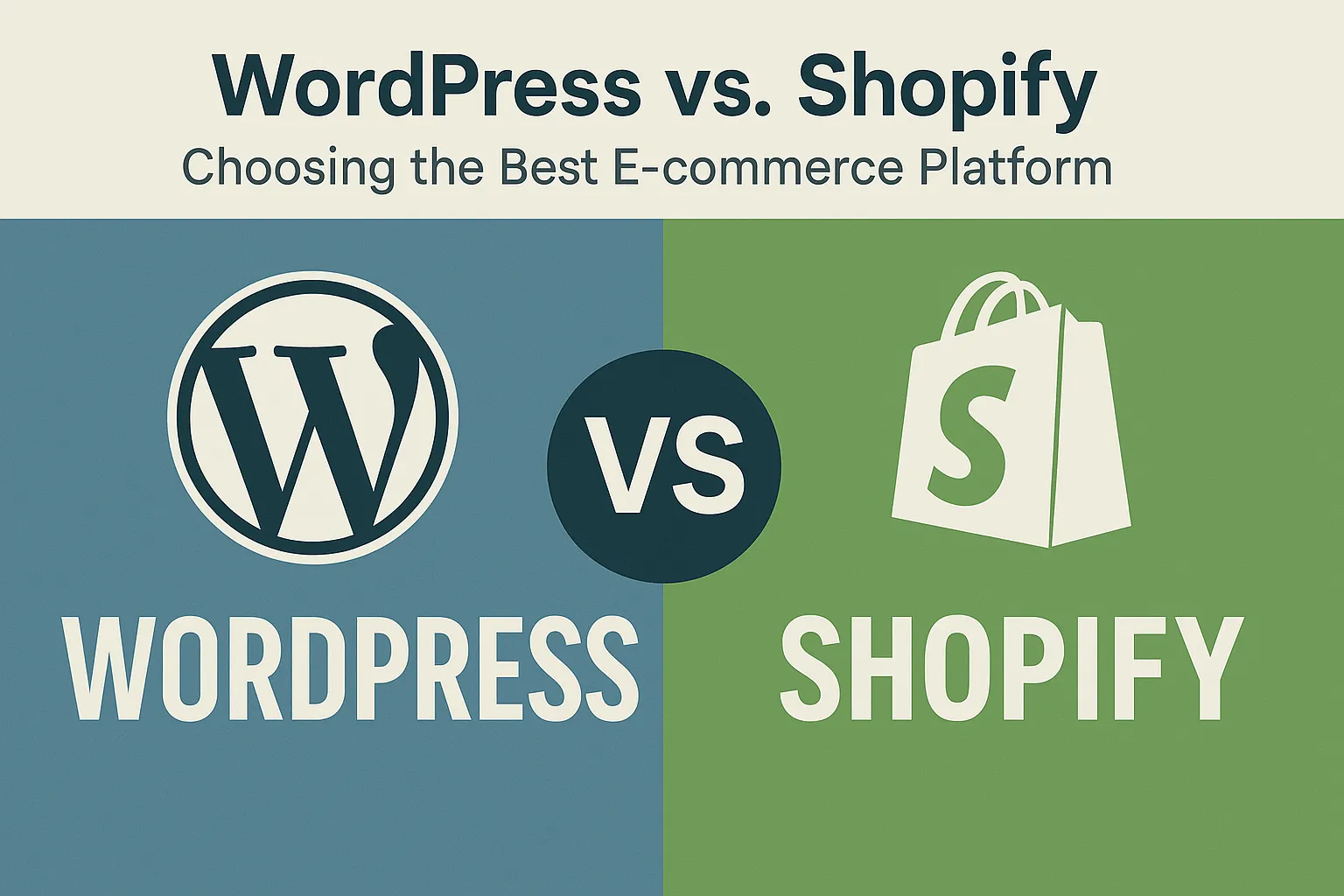Did you ever want to start an online store but couldn't decide which platform to use? I've been in the same boat, looking at choices like WordPress and Shopify and wondering which one would help my business grow without costing too much. Choosing the best e-commerce platform in 2025 is a make-or-break choice for getting leads and making money as a business owner or startup founder. Should you use Shopify, which is easy to use, or WordPress (WooCommerce), which is more flexible? Let's look at the prices, how easy they are to use, how well they work for SEO, and how well they can grow with your business. Talk to our experts at BYBOWU about which platform is best for your store and get started today!
Why the E-Commerce Platform You Pick Is Essential
Your online store is like a digital exchange of keys for clients, and the platform you choose will affect how well it does. By 2025, global e-commerce sales will have exceeded $7 trillion. Small businesses will be participating for a share of this huge market. If you choose the wrong platform, you might have to pay a lot of money, have challenges using the site, or ignore potential SEO opportunities. WordPress (with WooCommerce) and Shopify are two of the best options, and each has its own strengths. BYBOWU makes custom e-commerce solutions using both, so your store will get more sales. Let's look at the differences between WordPress and Shopify to help you choose.

What Makes WooCommerce (WordPress) Different?
In 2025, 29% of online stores will use WordPress and its WooCommerce plugin. You can use it to make anything from a simple store to a complicated marketplace because it is open-source and flexible. It has thousands of plugins and themes that let you change it in many ways, which is great for businesses that need special designs or features. But you need to know a little bit about technology to set it up and keep it running. BYBOWU's WordPress experts make WooCommerce stores that are SEO-friendly and can grow with your business, making them great for new businesses that want to grow.
Why Small Businesses Love Shopify
Shopify is the best e-commerce platform, running 20% of online stores in 2025. It has a drag-and-drop interface and built-in tools for payments, inventory, and shipping, so it's easy to use. Shopify is great for small businesses or people who are just starting out and want to get their store up and running quickly. But you can't change it much, and the fees can add up. BYBOWU adds custom React Native features to Shopify stores to make sure that your customers have a smooth shopping experience that fits your brand.
A Comparison of WordPress and Shopify
- Ease of use: Shopify is better for beginners with a simpler dashboard. WordPress has a steeper learning curve.
- Price: WordPress is cheaper initially (free plugin + $10–$50/mo hosting); Shopify starts at $29/mo + transaction fees.
- Customization: WordPress is highly customizable; Shopify is more limited.
- SEO: WordPress excels with plugins like Yoast; Shopify has limited built-in SEO tools.
- E-commerce tools: Shopify has built-in tools; WooCommerce requires additional plugins.
WordPress vs. Shopify: A Cost Breakdown
- WordPress: Free plugin, $10–$50/mo hosting, $0–$200 for themes, $0–$500/yr plugins, $2,000–$15,000 for custom dev. Ongoing: $50–$200/mo.
- Shopify: $29–$299/mo plans, 0.5–2% transaction fees unless using Shopify Payments, $1,000–$5,000 for themes/apps. Ongoing: $50–$400/mo.
Ease of Use: Which Platform Saves You Time?
Time is money. Shopify’s drag-and-drop builder and all-in-one dashboard let you launch a store quickly without much technical skill. WordPress gives more flexibility but takes longer to set up. BYBOWU can help ease the setup process for both platforms.
SEO Performance: How to Be Found Online
WordPress with plugins like Yoast gives fine-grained control for SEO. Shopify has basic tools but less flexibility. In 2025, WordPress sites often outperform Shopify for niche keywords. BYBOWU enhances SEO for both platforms with Next.js and custom tuning.
Scalability: Growing with Your Business
WordPress scales well with plugins and hosting upgrades. Shopify is best for small/medium stores, but can get costly as needs grow. BYBOWU provides scalable Laravel-based solutions for both platforms to keep growth smooth and cost-efficient.
What You Need to Sell Online: E-Commerce Features
Shopify has built-in tools like Stripe, PayPal, and cart recovery. WooCommerce requires plugins but is customizable. BYBOWU adds custom features to both, boosting conversions by up to 30%.
Look at our portfolio.Pros and Cons of WordPress and Shopify
WordPress: Pros – Open source, customizable, great SEO. Cons – Steeper learning curve, requires maintenance.
Shopify: Pros – User-friendly, fast setup, reliable hosting. Cons – Transaction fees, less customizable.
BYBOWU Client Story of Real-World Success
Laura, a small jewelry business owner, switched from Shopify to BYBOWU-built WooCommerce and gained 40% more traffic and doubled her sales. “My store finally feels like me.”
How to Pick the Best E-Commerce Platform
- Identify your needs: Simplicity → Shopify; Flexibility → WordPress
- Budget wisely: Consider setup, hosting, and ongoing costs
- Plan for growth: Make sure the platform scales with you
- Focus on SEO: More control → WordPress; Quick setup → Shopify
Get a free consultation with BYBOWU to find your best fit.
Things to Stay Away From
Don't choose a platform that can’t handle your business goals. Keep WordPress updated and avoid bloated apps on Shopify. BYBOWU helps you avoid these mistakes with strategic guidance and support.
Why You Should Work with BYBOWU for Your E-Commerce Needs
We create high-performance stores with Next.js, React Native, and Laravel. Our clients see up to 35% more conversions. Let’s build something that works for your business.
Start your online store with confidence
Choosing between Shopify and WordPress in 2025 doesn't have to be overwhelming. BYBOWU builds fast, scalable, and conversion-optimized stores tailored to your business. Set up your free consultation or email us at [email protected] to get started.





Comments
Be the first to comment.